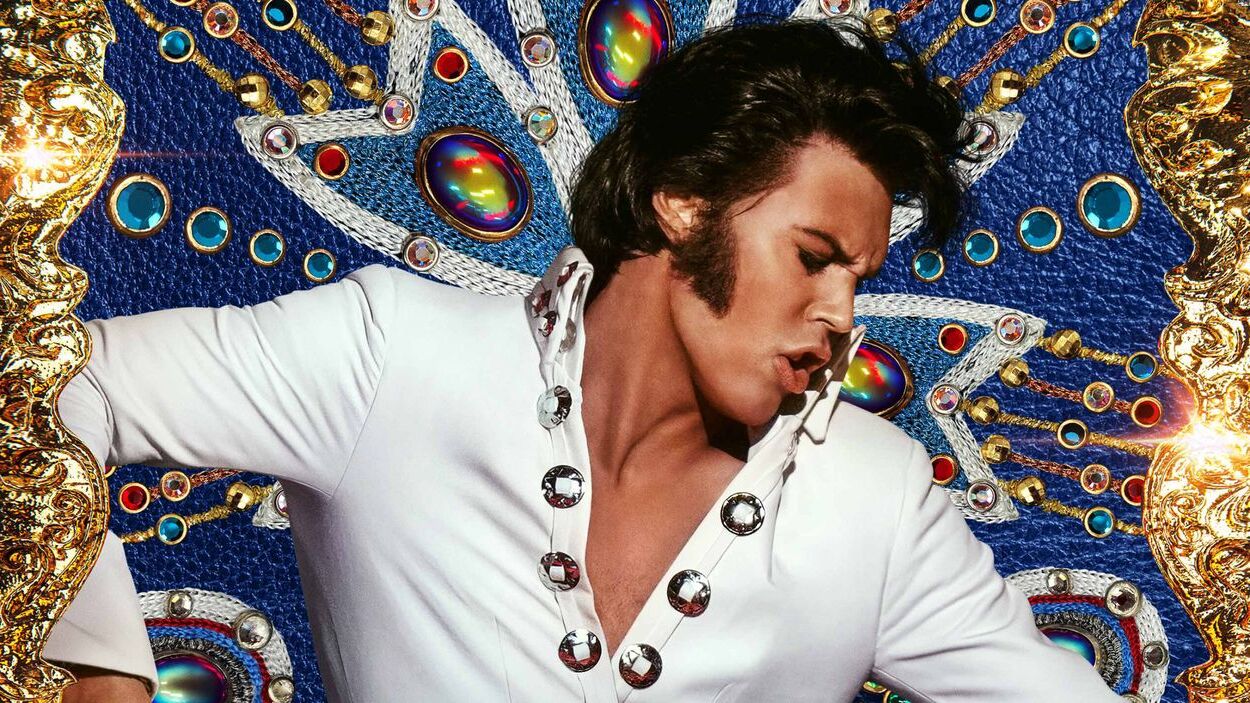
Elvis Presley, the "King of Rock and Roll," remains a cultural icon whose influence spans music, film, and fashion. Born on January 8, 1935, in Tupelo, Mississippi, Elvis's journey from a humble beginning to global superstardom is nothing short of legendary. Did you know Elvis's first guitar was a compromise? At 11, he wanted a rifle, but his mother convinced him to choose a guitar instead. This pivotal moment set the stage for a career that would revolutionize music. From his provocative dance moves to his military service, Elvis's life is filled with intriguing stories. Dive into these 34 facts to uncover more about the man who forever changed the landscape of popular culture.
Key Takeaways:
- Elvis Presley, the "King of Rock and Roll," overcame humble beginnings and family tragedy to become a global superstar, leaving a lasting impact on music, fashion, and culture.
- Despite facing criticism and personal challenges, Elvis Presley's enduring legacy as a cultural icon and influential musician continues to captivate audiences worldwide.
Early Life and Family
Elvis Presley, the "King of Rock and Roll," had a humble beginning that shaped his legendary career.
- Elvis Aaron Presley was born on January 8, 1935, in Tupelo, Mississippi. His parents were Vernon Elvis Presley and Gladys Love Presley.
- Twin Brother: Elvis had a twin brother, Jesse Garon Presley, who was stillborn. This loss deeply affected his family.
- Move to Memphis: At 13, Elvis's family moved to Memphis, Tennessee, where his musical journey began.
Musical Beginnings
Elvis's early encounters with music set the stage for his future stardom.
- First Guitar: At 11, Elvis received his first guitar. He initially wanted a rifle, but his mother convinced him to choose the guitar instead.
- First Recording: In 1954, Elvis recorded "My Happiness" and "That's When Your Heartaches Begin" at Sun Studio as a gift for his mother.
- Gospel Quartet Audition: Elvis auditioned for the Songfellows, a gospel quartet, in 1954 but was rejected. This did not deter him from pursuing music.
Rise to Fame
Elvis's journey to becoming a household name was marked by several key moments.
- Breakthrough Hit: "Heartbreak Hotel," released in 1956, was inspired by a newspaper article about a local suicide and became a massive success.
- TV Debut: Elvis made his television debut in 1956 on the "Milton Berle Show," where his dance moves earned him the nickname "Elvis the Pelvis."
- Guitar and Dance Moves: Milton Berle advised Elvis to perform without his guitar, leading to his iconic dance moves that were seen as provocative.
Controversy and Criticism
Elvis's unique style and music were not universally accepted.
- Conservative Backlash: In 1956, a Florida judge called Elvis "a savage," criticizing his music for undermining youth.
- Limited International Performances: Elvis performed only five concerts outside the U.S., all in Canada in 1957. His manager, Colonel Tom Parker, was an illegal immigrant and avoided international travel.
Military Service
Elvis's time in the U.S. Army was a significant chapter in his life.
- Drafted: In 1958, Elvis was drafted into the U.S. Army. He served honorably in West Germany and earned two medals for expert marksmanship and sharpshooting.
- Karate Enthusiast: During his military service, Elvis developed a passion for karate, eventually earning a black belt in 1960.
Film Career
Elvis's talents extended beyond music into the world of film.
- 31 Films: Elvis starred in 31 films, including "Jailhouse Rock," "Blue Hawaii," and "Viva Las Vegas." Despite his success, he never received an Academy Award nomination.
- Dream Role: Elvis always wanted to play Don Corleone in "The Godfather," but the role went to Marlon Brando.
Awards and Recognition
Elvis's contributions to music were recognized with several prestigious awards.
- Grammy Awards: Elvis won three Grammy Awards, all for his gospel music.
- Aloha from Hawaii: His 1973 TV special "Aloha from Hawaii" drew more viewers than the moon landing, cementing his status as a global superstar.
Personal Interests and Hobbies
Elvis had a wide range of interests beyond music and film.
- Favorite Books: Elvis's favorite books were "The Holy Bible" and "The Impersonal Life" by Joseph Benner.
- Fashion Icon: Known for his distinctive style, Elvis's flashy outfits and black hair made him a fashion icon.
- Favorite Football Teams: Elvis was a fan of the Cleveland Browns and Pittsburgh Steelers.
- Midnight Movie Screenings: He would rent out movie theaters to watch "Monty Python and the Holy Grail" with friends.
Personal Life
Elvis's personal life was as intriguing as his professional career.
- Marriage: Elvis married Priscilla Presley in 1967, and they had a daughter, Lisa Marie Presley, in 1968. They divorced in 1973.
- Favorite Food: Elvis loved Southern Maid Doughnuts and endorsed the Texas-based company, making him the only artist to endorse a product during his lifetime.
Later Years and Legacy
Elvis's influence continued even as his career faced challenges.
- Career Relaunch: In the 1970s, Elvis's popularity waned, but he successfully relaunched his career with a 1968 television special.
- Impersonators: By the time of his death in 1977, there were about 170 Elvis impersonators. Today, there are over 250,000 worldwide.
Death and Enduring Legacy
Elvis's untimely death marked the end of an era, but his legacy lives on.
- Death: Elvis Presley died on August 16, 1977, at 42. He was found unresponsive in his bathroom at Graceland. The cause of death was attributed to prescription medication abuse and heart disease.
- Legacy: Elvis's impact on music, fashion, and culture remains unparalleled. His influence is still felt today, with numerous books, films, and documentaries about his life and career.
- Awards and Recognition: Posthumously, Elvis was awarded the Presidential Medal of Freedom in 2018 by President Donald Trump.
- Discography: Elvis recorded over 600 songs but did not write any of them. His vast discography includes rock and roll, gospel, and country music.
- Impact on Music: Elvis helped popularize rock and roll, paving the way for future generations of musicians.
- Impact on Film: Although he did not win any Academy Awards, Elvis's films remain popular and are often cited as classics.
- Personal Interests: Beyond music and film, Elvis was a karate enthusiast, avid reader, and sports fan.
- Enduring Popularity: Elvis remains one of the best-selling artists of all time, with estimated sales ranging from 500 million to over a billion records worldwide.
- Cultural Icon: Elvis's life and career continue to captivate audiences, making him an enduring icon in popular culture.
Elvis's Lasting Impact
Elvis Presley wasn't just a musician; he was a cultural phenomenon. His journey from a small-town boy in Tupelo to the "King of Rock and Roll" is nothing short of legendary. With his groundbreaking music, electrifying performances, and unique style, Elvis changed the landscape of popular culture. His influence can still be seen in today's music, fashion, and entertainment. Even decades after his passing, Elvis's legacy lives on through his timeless songs, iconic films, and the countless impersonators who keep his spirit alive. Whether you're a lifelong fan or just discovering his magic, there's no denying that Elvis Presley left an indelible mark on the world. His story is a testament to the power of talent, determination, and a little bit of rock and roll.
Frequently Asked Questions
Was this page helpful?
Our commitment to delivering trustworthy and engaging content is at the heart of what we do. Each fact on our site is contributed by real users like you, bringing a wealth of diverse insights and information. To ensure the highest standards of accuracy and reliability, our dedicated editors meticulously review each submission. This process guarantees that the facts we share are not only fascinating but also credible. Trust in our commitment to quality and authenticity as you explore and learn with us.


